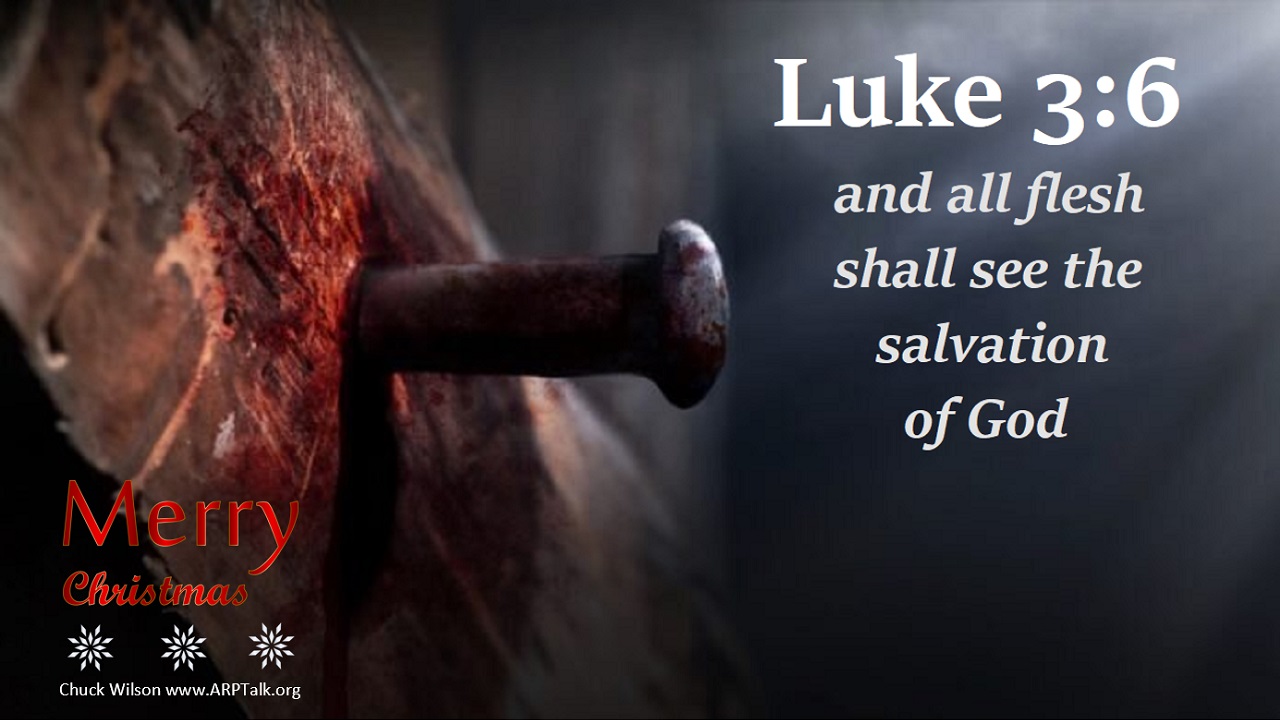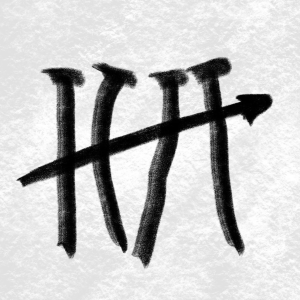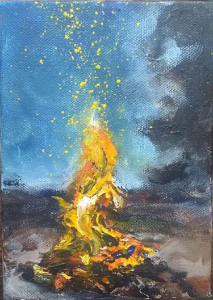Born for Wounds!

Christmas is a time for music.
 As I was thumbing through the hymnbook for Sunday’s hymns, I was struck once again that so many of the “great” Christmas hymns are in the minor key. “Joy to the World!” is an exception. Isaac Watts composed it in a major key as a celebration of Jesus’ Kingship and His Second Coming. Notwithstanding, the minor key is the dominating voice of time-honored Christmas music. The minor key is soulful: (1) it calls for a heart-pondering of the words “God with us,” (2) it is the sound of eloquence, portending the arrival of a Savior, (3) it searches the mystery of wounds inflicted on the innocent, and (4) it embraces the hurt of the Cross.
As I was thumbing through the hymnbook for Sunday’s hymns, I was struck once again that so many of the “great” Christmas hymns are in the minor key. “Joy to the World!” is an exception. Isaac Watts composed it in a major key as a celebration of Jesus’ Kingship and His Second Coming. Notwithstanding, the minor key is the dominating voice of time-honored Christmas music. The minor key is soulful: (1) it calls for a heart-pondering of the words “God with us,” (2) it is the sound of eloquence, portending the arrival of a Savior, (3) it searches the mystery of wounds inflicted on the innocent, and (4) it embraces the hurt of the Cross.
It was late afternoon. I was about to go home. The phone rang. An excited voice cracked: “Lillian has been in an automobile accident! She’s at the hospital! I think she’s dead!”
When I got to the Emergency Room, most of Lillian’s local family was already there. She was not dead, but, according to the ER doctor, the wounds from her injuries were “incompatible with life.”
What a phrase: “wounds . . . incompatible with life!”
Horace, Lillian’s husband of 48 years, pleaded to see her. The doctor warned Horace that Lillian was unconscious, and she was not going to regain consciousness. He also warned, “Her wounds are ugly!!”
Horace looked at me, asking, “Chuck, will you go with me?” Of course, I went with him.
Lillian wasn’t wounded; she was SHATTERED. Her face was terribly swollen. She had lost an eye. Her lips were blue and split. It looked as though she had lost teeth.
The only word I could think of was “shattered.” The doctor was right. It was ugly! It was hard to look at her!
After only a few minutes (but it seemed like hours), Lillian moaned softly, she quivered slightly, and she was gone.
Lillian died from an accident. A careless motorist ran a stop sign. He walked away without a scratch. Lillian was shattered!
Horace was sobbing. I was holding him, attempting to walk him back to the Waiting Room where family and friends were gathered in silence.
Horace asked, “Chuck, why did God let this happen to Lillian?”
Well, that was not a time for answers. It was a time for tears. Tears for the wounds to Lillian’s lifeless body. Tears for the wounds to Horace’s broken heart. Tears also for Horace’s haunting question.
This incident has troubled my dreams for years. I thought I was over it. I was wrong. A few nights ago, I revisited the incident again in a very vivid and disturbing dream.
Unable to go back to sleep, I went into the living room, turned on the light by my rocking chair, and picked up a notebook and scribbled a few thoughts before falling to sleep, again.
That morning, after cups of strong coffee, I reviewed my notes. For some reason, the word “wounds” dominated my notes. The doctor had spoken of Lillian being “wounded.”
I was met with this thought: “We are born for wounds!” We try to avoid wounds, but they are inevitable. At times, the wounds are inflicted by others, and, at other times, the wounds are self-inflicted. Nevertheless, we are born for wounds — and they hurt!
Beth has a scar on her left flank. Her twin sister, Lisa, was dying of kidney failure. Beth donated a kidney to her sister so that she could live and not die. Beth was born for the wound of a donated kidney. Beth’s wound hurt, but it is a good wound and a good hurt, for it announces the joy of a life saved.
There are other wounds. Randolph was born to serve as a soldier in North Africa, Sicily, and Europe. Amazingly, he had no physical wounds revealing that he fought in seven major battles and was awarded a chest full of medals for valor. His wounds were unseen. Today, we call his wounds PTSD. His wounds haunted and hurt him endlessly. He died at 80. He did not live long enough for his wounds to heal or for the hurt to subside.
John and Carol’s wounds are living wounds — a non- ending hurt. John and Carol were born to have and raise a “special child.”
The birth of a baby should be a time for joy. Will’s birth, however, has been a life-long wound and hurt for John and Carol. As Christians, they kneel to God’s will for their lives, and they thank God for the privilege of caring for and loving a “special child” who will never be like other children. It has not been easy. It hurts! I have been beside them in days of tears and hours of grief. The emotional trauma and physical demands on their lives are enormous and unrelenting. And, Yes, I have heard them ask, “Why us?”
Personally, I also know wounds. I was raised in a migrant worker community and knew the stings of being “poor” and an outcast. Learning to read was an agonizing struggle. I knew I was smart, for I had the ability to memorize easily, but why did the letters on a page not make sense to me? I was 20 before reading wasn’t a challenge — and spelling is still an affliction. And, when I began to love language and books, I was diagnosed with advanced glaucoma at 27, and it has robbed and blurred my vision. I have wondered why God made me smart and then took my books from me. AND HAS THAT HURT!! I have also known chronic back pain since 1971 when I injured my back in a basketball game. Every day is painful. My wounds, however, are not as acute as those of the friends of whom I have spoken. Nevertheless, my wounds are daunting and frustrating for me — and they hurt!
You see, life is not easy. It is not meant to be.
Long ago, Job mused, “Man is born to trouble as the sparks fly upward” (5.7). And as sure as day follows night, troubles bring wounds — and they hurt!
Horace’s question of years ago is still troubling. Many people of Christian faith have asked it. Frustrated, St. Teresa of Ávila exclaimed, “Lord, if this is how You treat Your friends, it is no wonder You have so few!” I like her spunky wit!
Bob, a charismatic friend who believed a good Christian lived a painless and untroubled life, asked me, “ How do you explain your limitations and wounds?”
I replied, “On the basis of my doctrine of original sin!” He was shocked. And then I added: “On the basis I was chosen for them.”
You see, this world is filled with both beauty and death. People are both noble and brutal, good and sinful. If the Biblical account of the Fall is not true and isn’t the explanation for the brokenness of our world, our world is intellectually unfathomable, and morality is impossible.
And, Yes, I know I have just packed a lot in a few words.
If my wounds (that is, my failures, my losses, my diseases, my intellectual and physical limitations, my death, and, yes, even my sins and trespasses) do not come from God’s plans for me and from His overriding Providence, which is “His most holy, wise, and powerful preserving and governing all his creatures and all their actions” (Shorter Catechism, Q. 11), where then do they come from? If they come from Satan, this world is totally evil and good is impossible. My experience tells me that is not the case. I know life and death, good and evil, beauty and ugly. And I know the differences between them. Satan does not own this world in which we live. God does, and Satan is God’s devil!
Once again, if my wounds do not come from God, from where do they come? If they come from chance, this world is meaningless and inexplicable. In the words of Peggy Lee’s jazzy song of despair from the 1970s, “If this is all there is, If this is all there is, Let’s keep dancing, Break out the booze, and let’s have a ball!” But I know that is NO explanation. Life is meaningful! Life is going somewhere! Life is teleological! Life is being drawn to a conclusion! Yes, it’s being drawn to God’s conclusion!
Christmas announces that our lives, in spite of all our wounds and hurt and limitations, are important. That is, our wounds and hurt are significant and consequential.
Years ago, on the old Phil Donahue Show, I listened to Donahue interview William Buckley who hosted Firing Line from 1966 to 1999.
Phil Donahue, an ex-Roman Catholic turned agnostic and skeptic, asked William Buckley, a faithful Catholic and sharp apologist for orthodox Christianity, “Bill, what is the most profound thought you have entertained?”
Without hesitation, Buckley said, “The Incarnation of Jesus Christ.” And, for the next 15 minutes (and without interruption by Donahue), Buckley gave the most profound and succinct explanation of the Incarnation I have ever heard.
I was surprised he didn’t say the Resurrection. As he explained, the Resurrection could not have occurred without the Incarnation.
As I remember, Buckley ended by emphasizing that Jesus was born to be wounded for the wounds of our sins. He was born to hurt for our hurt.
You see, the message of the Incarnation is that God the Son was chosen to put on human flesh and become one of us in order to share our infirmities, our wounds, and our hurt — but without sin. Indeed, “He was wounded for our transgressions, He was bruised for our iniquities: the chastisement of our peace was upon Him; and with His stripes we are healed” (Isaiah 53.5). “And he is the propitiation for our sins: and not for ours only, but also for the sins of the whole world” (1 John 2.2).
Like us, Jesus was born for wounds. We were born to hurt for the wounds of our sins. Jesus was born to hurt for the wounds of our sins, too.
Some of His wounds for which He was chosen are: (1) the wound of becoming flesh by being conceived in the womb of the Virgin Mary and born a child, “and that in a low condition” (Shorter Catechism, Q. 27); (2) the wound of King Herod the Great attempting to kill Him when he was a toddler; (3) the wound of Joseph and Mary and His half- siblings misunderstanding Him; (4) the wound of rejection by the people He came to save; (5) the wound of being misunderstood by His disciples; (6) the wound of being betrayed by a disciple; (7) the wound of a miscarriage of justice by the religious court in Jerusalem, by the court of King Herod, and by the court of Pilate, the Roman governor; and (8) the wounds of torture and death on a Roman cross.
The other day on YouTube I watched a video on Roman crucifixion. I learned that crucifixion was meant not just to kill the victim, but it was also meant to shatter the victim in case the victim was rescued before he died.
In crucifixion, an iron spike destroys the nerves and bones of the wrists and hands, with the hands left useless. The iron foot-spike splinters the ankles and feet, rendering the victim unable to walk and in constant pain.
If someone were rescued from crucifixion, he would be left in pain, unable to feed himself, and unable to walk. The only thing he would have to look forward to is a life of horror and misery.
Do you remember the doctor saying Lillian had “wounds . . . incompatible with life? Jesus had “wounds . . . incompatible with life.”
Jesus was born for the wounds and hurt of the Cross.
Charles Wesley sings of the wounds of Jesus in this manner:
Five bleeding wounds He bears,
received on Calvary;
They pour effectual prayers;
they strongly plead for me:
“Forgive him, oh, forgive,” they cry,
“Forgive him, oh, forgive,” they cry,
“Nor let that ransomed sinner die!”
The question, “Why does God let bad things happen?” is answered because of original sin which goes back to Adam and Eve, and also because of the sins we have committed, for we are sinners by choice.
The message of Christmas, though sung in the soulful notes of the minor key, anticipates the celebration of Easter’s Resurrection, and it reaches deep into the penetralium of God’s love, releasing “grace that is greater than all my sins.”
If Christmas is not celebrated in the sacrificial blood of Jesus on the Cross and the justifying power of His Resurrection for sinners such as we are, there is no answer for our wounds and hurt. Christmas becomes nothing more than a story told for greedy children. But you know, Christmas is a story told for greedy children. That is, Christmas is the story told for the children of “the King of Angels” who are greedy for life and life everlasting.
Indeed, to all such as believe: “JOY TO THE WORLD! THE SAVIOR REIGNS!” Amen
Merry Christmas,
![]()
Charles W. Wilson

A moving piece, Chuck.
A wonderful message, my brother! Made me recall my early reading of Schilder’s 3 volumes on the sufferings of Christ. Thank you for posting this. Several decades of wounds that hurt exceedingly have enabled a ministry to hurting people with sympathy I never knew before. A tear while consoling a suffering child of God tells them I know both the pain they bear and the comfort God offers. Yes, mighty providences I acknowledge as God’s hand preparing heart qualifications to enter into the hurts of so many.
Well said.
Chuck, you continue to hit me with a good solid gut punch.
Just what I needed, I am thankful that God crossed our paths so many years ago.
Pastoral, Insightful, & Comforting. Thank you for reminding me He knows, He cares & He is near. Amen.
Blessed truth; hope and comfort from your pastoral heart and pen, Chuck. As our elder brother, James, writes, “Count it all joy, my brothers, when you meet trials of various kinds, for you know that the testing of your faith produces steadfastness. And let steadfastness have its full effect, that you may be “Teleios”, lacking in nothing.”
Chuck Wilson actually gets the big picture in any and all that He writes. A pure class act that is extremely focused and smart. Love his work.